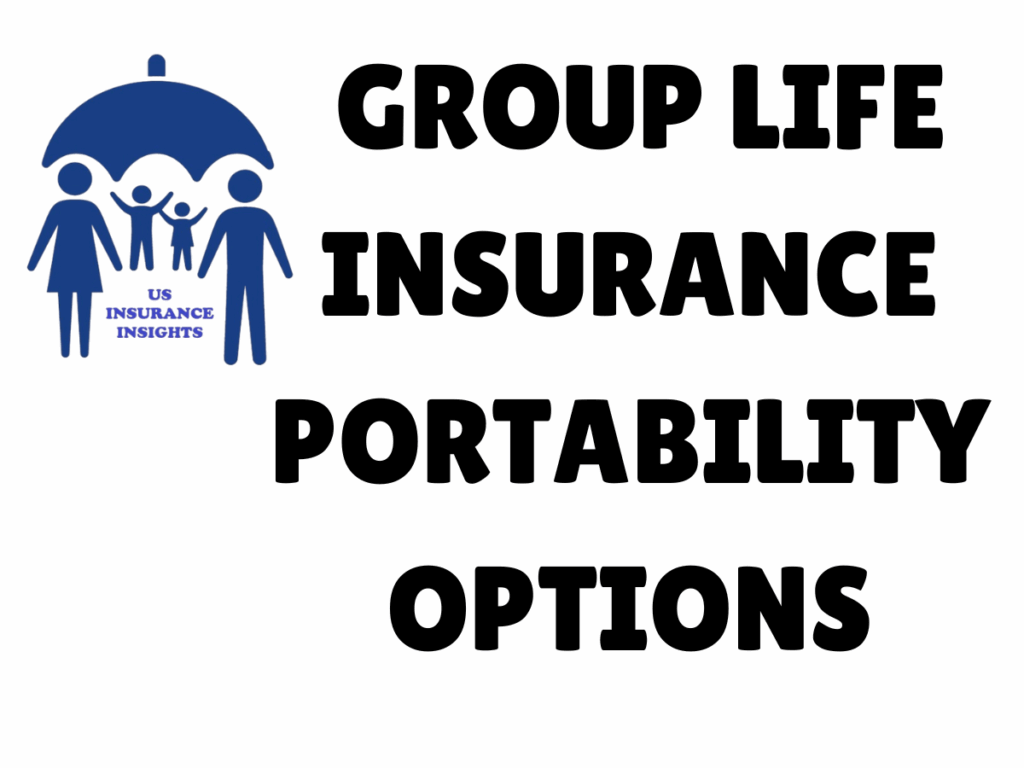What Are Group Life Insurance Portability Options?
One of the biggest concerns employees face when changing jobs is whether they can keep their group Employees often worry about their group life insurance policy when they consider a job change. Some employers now allow employees to keep their insurance plan when they leave the company.
Group life insurance portability options refer to the ability to continue coverage under an employer-sponsored policy after leaving a job. As a result, you and your family are able to stay safe through every phase of your career. Still, some plans are not portable and those that are can have distinct terms and costs.
Knowing what you can do with your retirement plan matters for your security. We’ll explore the process for transferring group life insurance, what’s good about it and how to preserve your coverage.
What Should I Know About Group Life Insurance Portability?
1. Employers Coverage compared to the Portability
Employers usually help cover the costs of your group life insurance when you are working for them. But if you leave, you could keep the coverage by personally paying for it.
A lot of people believe that their life insurance stops immediately after they leave their position. Yet, the ability to carry your coverage when you move helps to keep your security intact. If your future employer doesn’t have life insurance or you want to take some time off, this option can help you.
2. Portable vs. Convertible Policies Group life insurance portability options
You have two main choices to keep your life insurance after leaving your job:
You are allowed to move the coverage with your colleagues but expect to pay higher rates.
Switching: If you choose, you may convert to a personal insurance policy, where you’ll pay premiums that reflect your current age and health.
Having portable policies means you can usually maintain the same coverage, for less than you’d pay for a new individual health insurance policy. With a convertible policy, you have the choice to move to a different plan when your requirements change longer term.
3. Eligibility for Portability Group life insurance portability options
A number of group life insurance plans are not portable. Employers decide on the details of their policies and portability might depend on different things.
Required years to serve
A few policies prevent workers over 65 from transferring their benefits (if they leave).
Employment end reason (certain plans exclude firing or downsizing reasons)
Ensuring you meet certain requirements is a must for employees who want to move their coverage to another company. It’s important to find out from your HR and insurance provider if portability is available to you before using it.
4. Costs and Premium Adjustments Group life insurance portability options
As soon as you select group life insurance on a portable basis, your employer will not contribute to your premiums, so they will go up. Although, since you’re on a group plan, prices are often lower compared to buying an individual policy.
Don’t forget that, although you didn’t pay all of your premiums while working, you will need to cover the entire cost after porting your health plan. Although the premiums may become higher, it’s generally a better deal than paying the rates of a different life insurance plan.
Why Group Life Insurance is Portable
✔️ 1. Going on with Financial Protection
After leaving a job, you will not lose your life insurance coverage. With portability, you are able to stay covered and keep your family safe.
✔️ 2. A person does not have to get another medical exam.
Often, no additional medical screening is needed for portable group life insurance, meaning it is a good fit for people with health issues.
✔️ 3. Easy to use and predictable
It can be hard and costly to change to an individual plan. Having one group policy in place speeds up the process and guarantees you’re prepared.
✔️ 4. An Opportunity for a New Policy
During a job change, you can use portability to have insurance while you wait for the group life benefits from your new employer.
How you can Transfer Your Group Life Policy in Easy Steps
Step 1: Check Your Policy for Portability Provisions Group life insurance portability options
Don’t quit without reviewing your group life insurance policy and speaking to your HR department. Examine the terms about being able to take the plan from one region to another and about who is eligible.
Step 2: Understand the Costs of Group life insurance portability options
Check what the premiums will be for a portable group life insurance policy. Check how these insurance rates stand up to other personal life insurance options for best results.
Step 3: Complete the Paperwork Group life insurance portability options
After leaving your job, you have to complete a portability request form within 30-60 days, according to most insurers.
Step 4: Make Your First Payment Group life insurance portability options
Upon approval, you must pay the first premium so your insurance remains uninterrupted. A lot of insurers give you the choice to pay monthly or yearly.
Step 5: Evaluate Long-Term Options Group life insurance portability options
Although portable group life insurance is easy to use, it’s wise to review your choices, since getting a separate term or whole life insurance can provide a lasting defense.
Some of the Nine Common Myths About Group Life Insurance Portability
❌ Myth 2: My Life Insurance Group Plan Can’t Be Canceled
Unless you opt to convert or transfer, happening before you change jobs, most employer life insurance ends then.
Wrong. Portability always costs something.
When you are no longer with your employer, you will have to pay all the premiums and these are usually a lot higher than what your employer covered.
It’s a common misconception that portability is the same as conversion.
You can keep your group life insurance on the go or you could change it to an individual one, even though it likely will cost more and offer you more options.
Why Group Life Insurance Portability Must Be Considered
Group life insurance portability options give employees a way to maintain valuable coverage even after leaving a job. Sure, life insurance can be pricy, however, it gives a smooth solution to maintaining your protection during your career path changes.
Before picking a portable health plan, look into the fees involved, the coverage you’ll get and options for other plans. Doing this guarantees your family will stay secure financially, no matter what happens in your career.

